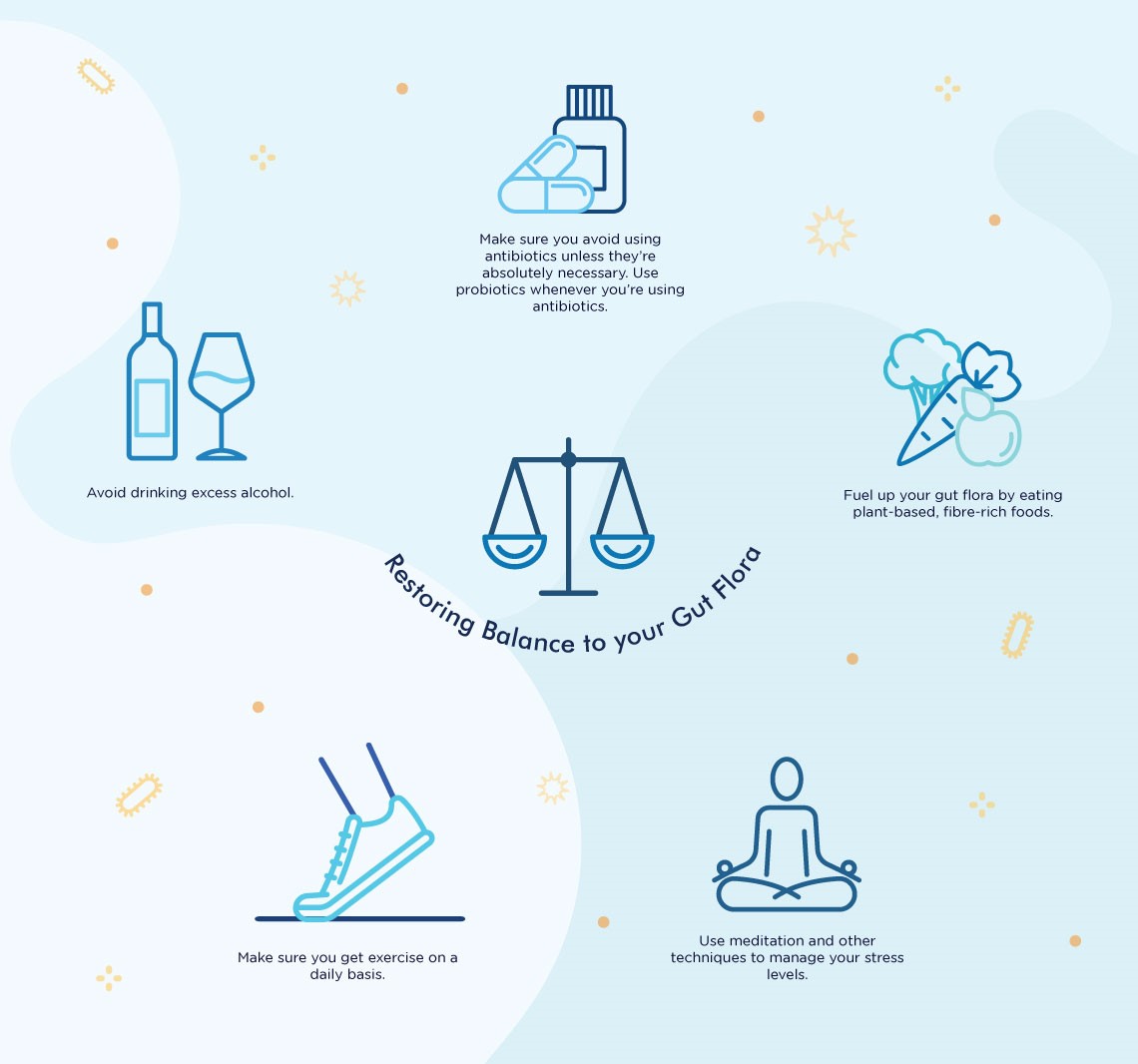5 ways you can upset your gut balance (and how to fix it)

The microbiome is home to over 100 trillion gut bacteria. Having a healthy balance of bacteria is incredibly important for your overall health.
Unfortunately, it’s quite easy to throw off this balance with many diet, lifestyle and other environmental factors negatively affecting your bacteria.
This article will unpack five of the most common issues that can upset the balance of your gut, and some simple ways to correct an imbalance.
1. Low fibre intake
By now you probably already know that fibre is good for you. But fibre isn’t just food and fuel for you, it also sustains the bacteria in your gut. These tiny bacteria rely on you for their diet, and if you don’t get enough prebiotic fibre (the type of fibre probiotics love to eat) then your microbiome will become malnourished.
Foods high in prebiotic fibre include fruits, vegetables, whole grains and legumes. It’s important to eat several servings of each on a daily basis.
2. Drinking alcohol
Drinking excess alcohol can be potentially damaging for your gut health, and there are a number of reasons why.
The consumption of alcohol can result in dysbiotic changes in your microbiome, and also triggers gastrointestinal inflammation.
Inflammation in the gut can lead not only to physical discomfort, bloating, and diarrhoea, but can also make it harder for your gut bacteria to survive.
Avoiding excess consumption of alcohol is vital for ensuring good microbiome activity1.
3. Stress
Research has proven that stress can take quite the toll on the body. Many of the problems caused by stress are related to cortisol - the ‘stress hormone,’ - and adrenaline, both of which are released in abundance when we are dealing with high-stress situations.
Both of these hormones are known to make the gut more sensitive to inflammation. This, in turn, can make the living conditions for your gut bacteria less-than-ideal. Much like humans would without healthy living conditions, these helpful bacteria will move out or simply die2.
4. Lack of exercise
Leading a sedentary life can lead to a number of problems, some of which can impact the diversity of the bacteria in your gut. If you avoid exercise like the plague, then there’s a chance that your balance of good bacteria will suffer as well3.
5. Antibiotics
Antibiotics are powerful and life-saving medicines, however what many don’t know is that they can also disrupt the balance of our good gut bacteria.
Antibiotics can be great for killing off bacterial infections. Unfortunately, most of the antibiotics prescribed these days aren’t selective. That means that they don’t choose which bacteria to kill, and can consequently compromise your stores of beneficial bacteria too.
Antibiotics have been known to cause imbalances and problems in the balance of your gut. This is one of the reasons that antibiotics can sometimes cause gastrointestinal problems like antibiotic-associated diarrhoea (AAD).4
How to restore balance to your gut
If any of these situations apply to you, then don’t worry! You can restore balance to your gut by following the steps below:

Another thing to focus on is rebuilding the diversity of your gut bacteria. There are several strains of probiotics that are particularly useful for this.
Lactobacillus rhamnosus LGG®, is one of the most studied strains in the world. LGG® has been shown to help some of our most important bacteria flourish.5
Saccharomyces cerevisiae (boulardii) SB is one of the best probiotics to take if you’re using antibiotics. It helps to protect your microbiome and also to restore it after antibiotics have damaged it.6
2https://www.ncbi.nlm.nih.gov/pmc/articles/PMC4259177/
3https://www.ncbi.nlm.nih.gov/pmc/articles/PMC5357536/
4https://www.ncbi.nlm.nih.gov/pmc/articles/PMC4709861/
5https://www.ncbi.nlm.nih.gov/pmc/articles/PMC5585742/
6 https://www.ncbi.nlm.nih.gov/pmc/articles/PMC5029483/
